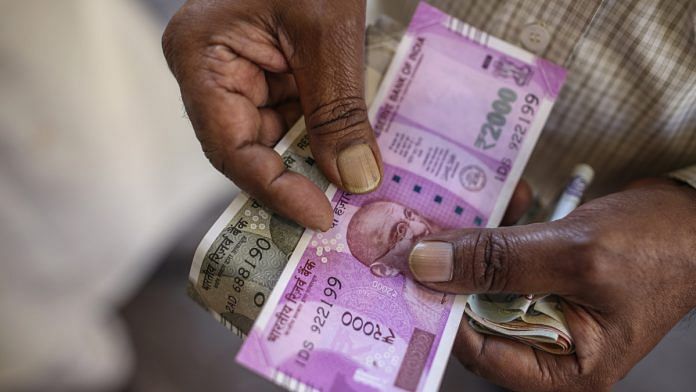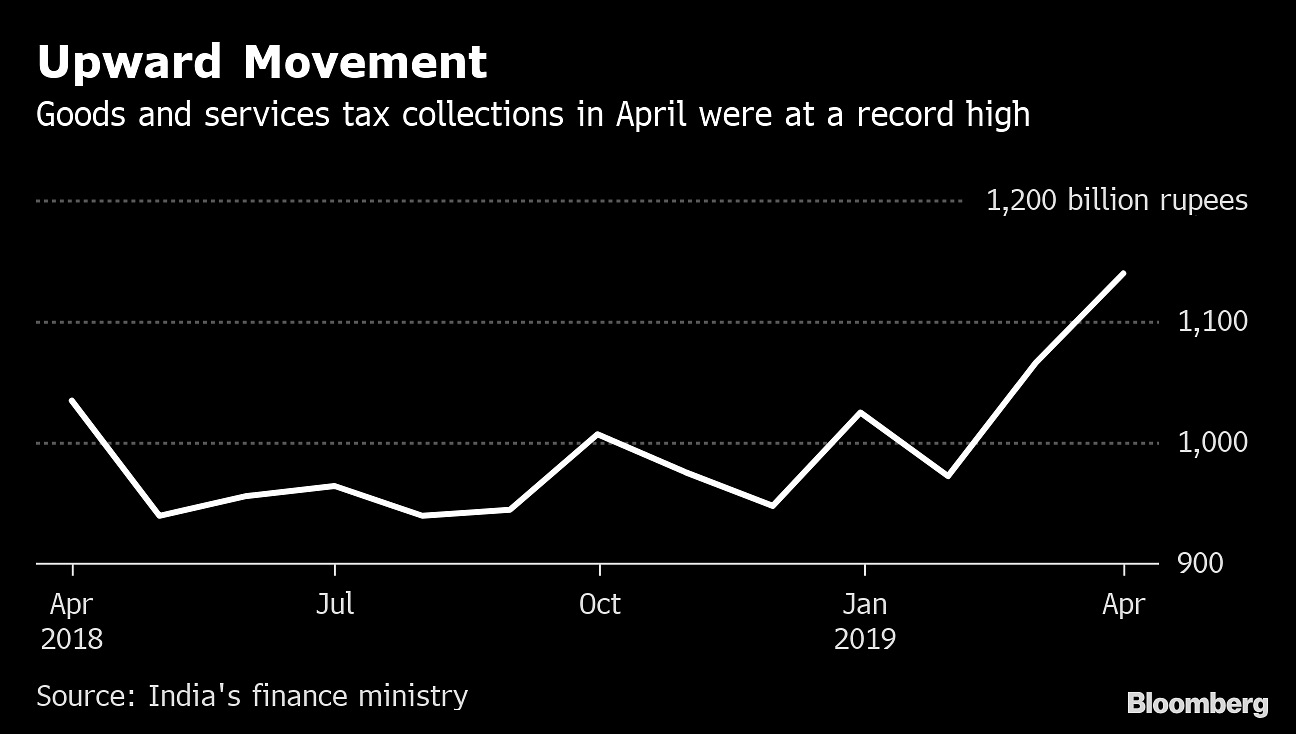New Delhi: India’s goods and services tax revenue touched the highest ever in April, but the spurt in collections is far from becoming the norm just yet.
Collections from the nationwide sales tax rose 10 per cent to Rs 1.13 trillion ($16 billion) in April from a year ago, official data show. While that was the closest to the Rs 1.15 trillion monthly target set by Prime Minister Narendra Modi’s administration, it’s still not enough to bridge the government’s budget gap, say economists.
“If GST collections do not improve further and sustain, the pressure on the central government’s fiscal position will continue,” economists Suvodeep Rakshit and Upasna Bhardwaj at Kotak Mahindra Bank wrote in a note. The targeted growth of 24 per cent in the financial year ending March 31 will “be difficult to achieve.”
India let fiscal deficit widen for a second straight year as Modi, who’s seeking a second term in office in elections currently underway, tried to win over voters through cash handouts for farmers and tax cuts for the middle class.
The government needs to more stringently implement programs to discourage tax evasion and boost compliance of direct and indirect taxes to alleviate the fiscal stress, said Ashray Ohri, an economist with ICICI Bank Ltd.
The government had touted GST as a tool to increase tax compliance when it was introduced in July 2017. Collections under the new tax have crossed the 1 trillion rupee-mark in three of the first four months in 2019, suggesting it’s gaining traction.
The jump in collections was “expected to happen after transition period of adjustment is over,” said Arvind Virmani, a former chief economic adviser in the finance ministry and chairman of the Foundation For Economic Growth & Welfare. “One data point doesn’t, however, make a new trend.”
Also read: Why political meddling with central banks, like in India, is a terrible idea




